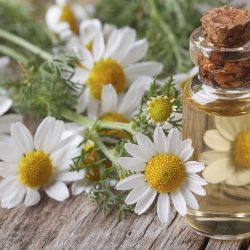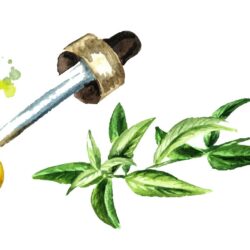Initially, the stressor is mainly physical . It is indeed thanks to stress that we can react quickly in a dangerous situation (fire, road accident … we speak of so-called “life-saving” stress. At present, the evolution of our lifestyle puts us in front of more and more constraints. We are confronted with permanent overwork: working for a living, looking after the children, looking after the household, shopping, paying the bills, major events of life (bereavement, illness, family difficulties, etc.), our state of health and the list goes on … In the end, the time devoted to oneself remains minimal, even, for some, non-existent. So when our daily life becomes a permanent race, we face a completely different type of stress, so-called “psychological or intellectual” stress.
According to the WHO, “stress appears in a person whose resources and personal management strategies are overwhelmed by the demands placed on him. ”
In fact, stress appears in people who are under psychological, physical or emotional pressure. It corresponds to a reaction of the organism to face certain situations .
From “ego” stress to “chronic” stress
Acute stress occurs in everyday life at a specific time and does not last over time. In short, chronic stress gradually sets in due to repeated exposure to stress for a long time.
1) Alert phase:
It allows the emergency reaction (it generally lasts less than 1 hour).
When the brain detects a danger, adrenaline is released into the blood, it then follows :
- Increased heart rate
- Increased glucose and cholesterol
- Greater muscle tension
- Accelerated breathing
- Fall of the immune system
2) Resistance phase:
If the cause persists, the body depletes its reserves of energy, vitamins and minerals, plunging us into a state of fatigue, constant worry, irritability and even anger and impatience.
3) Exhaustion phase:
The causes of stress , repeated and long lasting lead the body to exhaustion: the immune system weakens leading to premature aging, weight gain , insomnia … Cell renewal slows down and the risk of immune diseases increases, as a result of that, health problems of all kinds arise.
Manifestations of stress
Physical manifestations of stress:
- Migraines more and more severe
- Dry skin, pimples, redness
- Muscle tension (neck, shoulders, back)
- Digestive problems, upset stomach, ulcer
- Painful palpitations in the chest
Psychological manifestations of stress:
- Lack of concentration due to a large number of worries
- Memory problems (forgetfulness of events, numbers, places, etc … which one remembers in normal times)
- Indecision
- Emotional manifestations
- Irritability, bad mood
- Loss of confidence and self-respect
- Depressed state to see depressed, gloominess, distorted view of things
- Feeling of exhaustion, lack of enthusiasm
Behavioral manifestations of stress:
- Sleep disorders: insomnia, increased need for sleep (non-restorative)
- Increased consumption of alcohol and tobacco for relief
- Decreased libido leading to anxiety, withdrawal into oneself and rejection of help from others
- Refusal of the presence of those around him
- Difficulty relaxing, restlessness
Factors favoring stress
Stress will be caused by multiple conflicting or distressing situations in :
Our professional life : pressure at work, noise, crowds, transport, pollution of all kinds, setbacks, the telephone, the aggressiveness of colleagues, customers, students, bosses and finally unemployment.
Our private life: happy events like unfortunate events can be a cause of stress and family conflicts, a birth, a marriage, a divorce or a bereavement are all causes.
Our lifestyle: lack of sleep, lack of physical exercise, an unsuitable living or working environment, poor diet with too much sugar and fat.
Stress management techniques
By phytotherapy:
-
Ginseng :
It is traditionally used in Chinese medicine to boost energy and help the body cope with physical and mental fatigue . It is an adaptogenic plant par excellence, it helps to tone the body, improve resistance to various stresses and increase concentration and general well-being.
Cure from 15 days to 1 month in the form of capsules or ampoules to be taken preferably in the morning with breakfast.
-
Rhodiola :
The Rhodiola rosea comes from Siberia, where it is traditionally used for the adaptation to stress and nervous fatigue . It improves intellectual capacities rather indicated for people stressed by an overload of work or a new job compensated for the lack of sleep linked to stress.
Precaution for use: No known side effect at the recommended dosages, but out of caution, it is not recommended for pregnant or breastfeeding women, as well as for children.
-
Valerian :
Used in the treatment of nervousness and sleep anxiety disorders for centuries, Valeriana officinalis soothes nervous tension , anxiety with a tendency to depression , reduces the time it takes to fall asleep , improves the quality of sleep and reduces nighttime restlessness. . It is the plant of people who ruminate on obsessive worries.
-
Hawthorn :
Traditionally used for its cardiotonic and hypotensive properties and to reduce heart palpitations, hawthorn ( Crataegus laevigata ) is indicated whenever tachycardias, respiratory or thoracic oppression, balls in the throat, a feeling of racing or racing heart. stops accompanying stress.
By aromatherapy:
LAVENDER essential oil :
- Calms the nerves
- Relaxes the muscles
- Calms the nervous system
- Reduces excitability
PETIT GRAIN BIGARADIER essential oil :
- Fight against nervous breakdown
- Rebalances the nervous system
- Soothing
MANDARIN essential oil :
- Balancing the nervous system
- Calming, relaxing
- Promotes sleep
LEMON VERBENA essential oil :
- Facilitates sleep
- Limit anxiety
- Antidepressant
- Calm the fears
NOBLE CHAMOMILE essential oil :
- Calming
- Fight against anxiety
YLANG YLANG essential oil :
- Physical, mental, psychological and sexual anti-fatigue
Management of oneself and one’s environment
- Take TIME FOR YOU, practice an activity that allows you to relax, to disconnect your mind: reading a book, playing a sport, spending time with your friends, taking a bath, etc.
- Adopt a good lifestyle, it is the basis of the fight against stress: eat healthy (avoid industrial food, refined sugar, sodas), get enough sleep (7 hours per night minimum), practice sport regularly, proscribe smoking, do not abuse alcohol.
- Change your attitudes; adopt a positive way of thinking (learn to see the bright side of things, show gratitude around you), improve your way of communicating; talk about yourself, about your feelings and not about the other, stop the “YOU”, “You should”, learn to express yourself by the “I”, “I need”, “I feel”, you will see that your interactions with others will be facilitated and this will surely prevent you from possible conflicts. Be kind to yourself, you can’t always achieve perfection, do your best is most important.
- Learn to manage your environment: make a list of your priorities, organize your schedule, avoid procrastination, connect with the present moment (focus on what you are doing right now, stop thinking about the past or in the future).
- Identify your goals: find something that motivates you, focus on it and do whatever it takes to achieve it. This allows you to refocus and find a balance in your life.
As you will have understood, stress can have a direct impact on our life, both physically and psychically . It is therefore essential to learn how to manage it in order to be able to achieve overall well-being.





